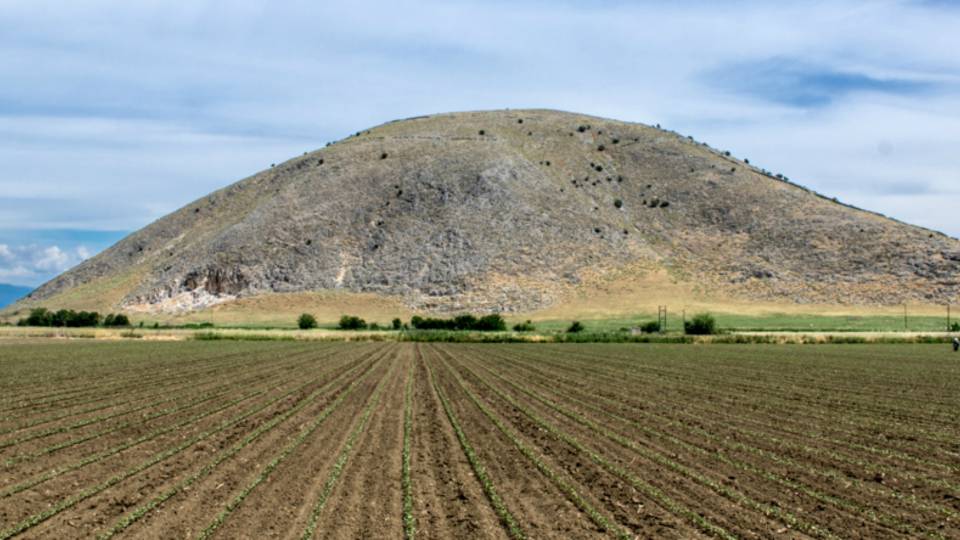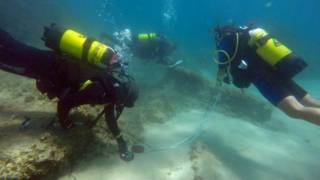Swedish and Greek Archaeologists Discover Unknown City in Greece
An international research team at the Department of Historical Studies, University of Gothenburg, is exploring the remains of an ancient city in central Greece. The results can change the view of an area that traditionally has been considered a backwater of the ancient world.
Archaeologists from the University of Gothenburg have begun exploring a previously unknown ancient city at a village called Vlochós, five hours north of Athens. The archaeological remains are scattered on and around the Strongilovoúni hill on the great Thessalian plains and can be dated to several historical periods.
‘What used to be considered remains of some irrelevant settlement on a hill can now be upgraded to remains of a city of higher significance than previously thought, and this after only one season,’ says Robin Rönnlund, PhD student in Classical Archaeology and Ancient History at the University of Gothenburg and leader of the fieldwork.
‘A colleague and I came across the site in connection with another project last year, and we realised the great potential right away. The fact that nobody has never explored the hill before is a mystery.’
In collaboration with the Swedish Institute at Athens and the local archaeological service in Karditsa, the Vlochós Archaeological Project (VLAP) was started with an aim to explore the remains. The project’s research team completed the first field season during two weeks in September 2016.
Rönnlund says that the hill is hiding many secrets. Remains of towers, walls and city gates can be found on the summit and slopes, but hardly anything is visible on the ground below. The ambition is to avoid excavation and instead use methods such as ground-penetrating radar, which will enable the team to leave the site in the same shape as it was in when they arrived. The success of this approach is evident from the results of the first field season:
‘We found a town square and a street grid that indicate that we are dealing with quite a large city. The area inside the city wall measures over 40 hectares. We also found ancient pottery and coins that can help to date the city. Our oldest finds are from around 500 BC, but the city seems to have flourished mainly from the fourth to the third century BC before it was abandoned for some reason, maybe in connection with the Roman conquest of the area.
Rönnlund believes that the Swedish-Greek project can provide important clues as to what happened during this violent period in Greek history.
‘Very little is known about ancient cities in the region, and many researchers have previously believed that western Thessaly was somewhat of a backwater during Antiquity. Our project therefore fills an important gap in the knowledge about the area and shows that a lot remains to be discovered in the Greek soil.’






















